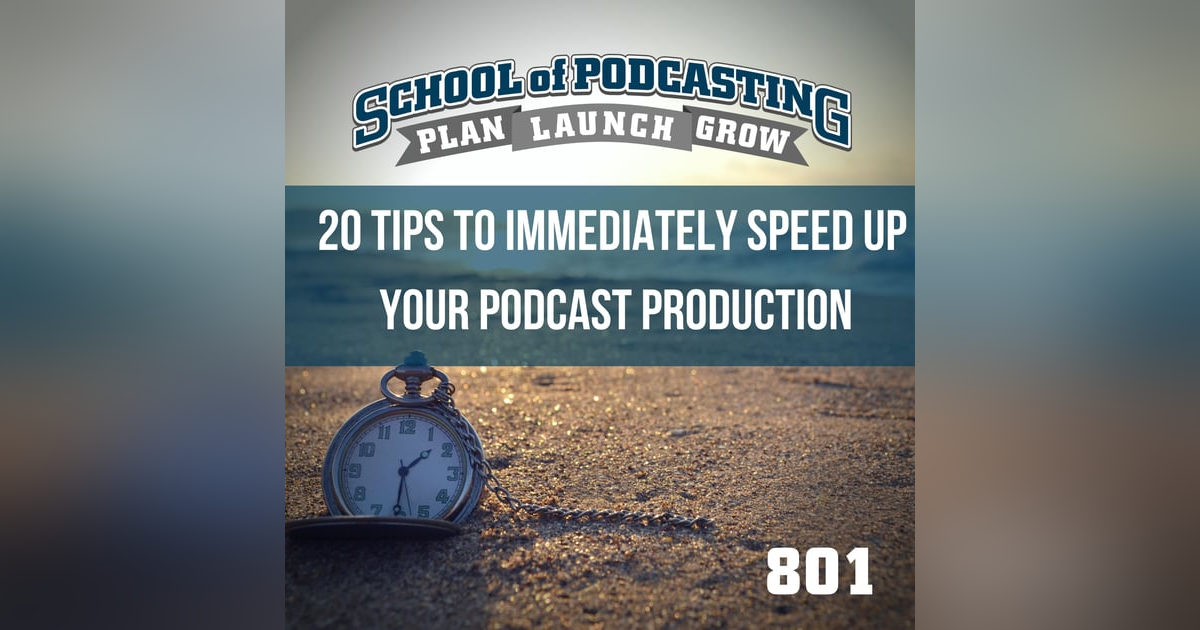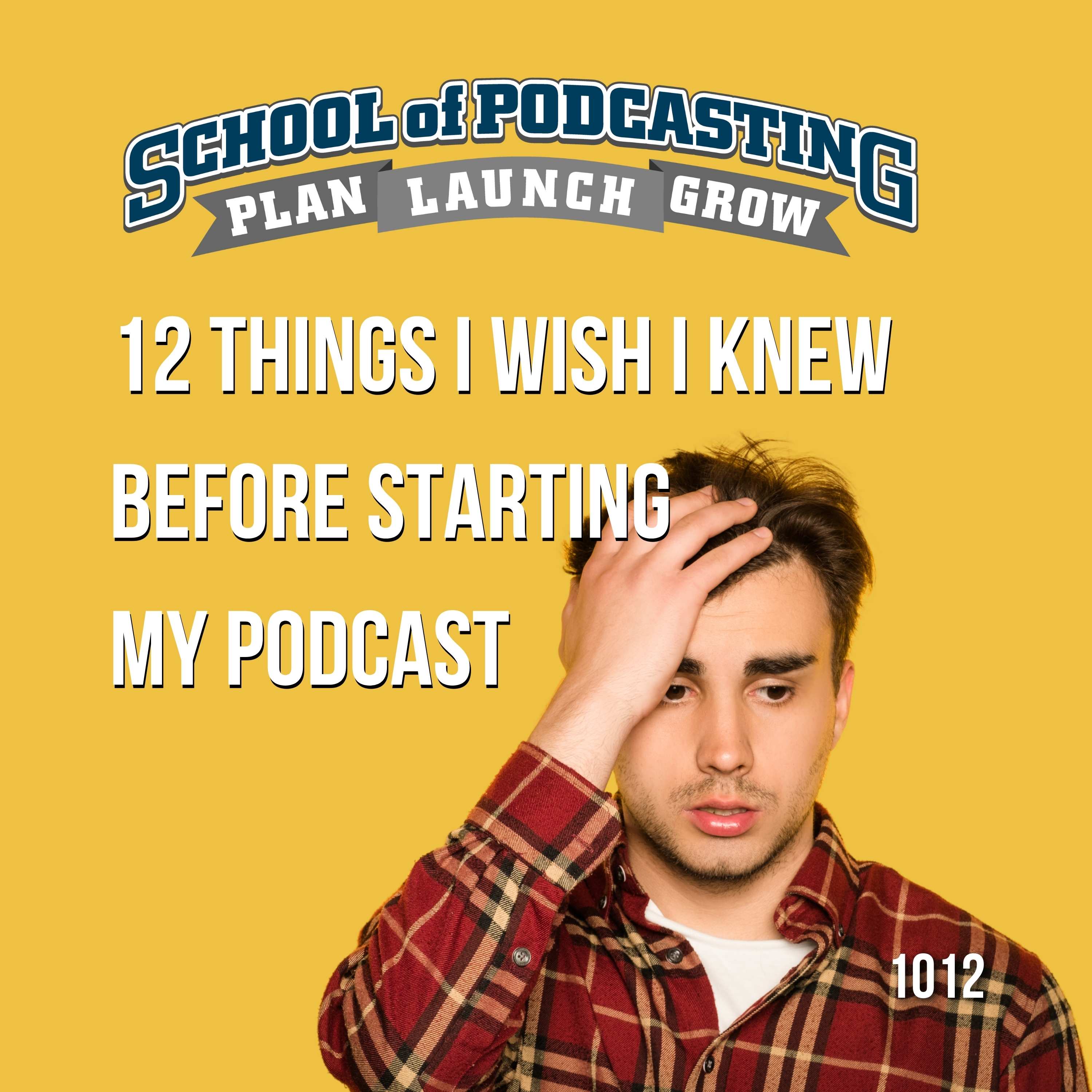20 Tips To immediately Speed up Your Podcast Production

If you are looking to speed up your podcast production, then this episode is for you. I have compiled 20 tips that will help you take the stress out of producing a quality audio file in a timely manner. From planning to editing, here are some quick tricks that will make your podcast shine!
Sponsor: Novel Marketing Podcast
A lot of podcasters plan to write a book but they don't know where to start. Our sponsor the Novel Marketing Podcast is here to help. Thomas Umstattd Jr is a wealth of knowledge and he can get you going in the right direction. Today we talk about the 10 commandments of book publishing. Check out https://www.schoolofpodcasting.com/author
Mentioned In This Episode
School of Podcasting Quick Start
School of Podcasting Membership
Fiverr Workspace Accounting Software
Otter.ai transcription Service
First Things First book
Libsyn.com Media Host (sopfree promo code)
TIPS
- Assess How Much Your Time Is Worth
- Take the Time to Get Your Guest Sound in Check
- Quit Multitasking
- Avoid Distractions
- Block out time
- More Planning Equals Less Editing
- Do the Hardest Stuff First
- Prioritize Better
- Speed up Researching
- Organize Your Content to It's Easy to Find
- Learn the Software You Are Using (Take a Class)
- Record it Right the First Time
- Listen Back Faster
- Learn Keyboard Shortcuts
- Google Vs Bang Your Head Against the Desk
- Know WHO your guest is and WHY You are bringing them on the show
- Outsource Your Editing
- Automate When Possible
- Use Transcripts to find clips for audiograms.
- Deep Breathing when pulled out of your zone
QUESTION OF THE MONTH
II need your answer by 11/26/21. How long does it take you to go from idea to published on an episode.
Go to www.schoolofpodcasting.com/question
00:00 - Untitled
03:25 - Tools I Use To Plan and Organize
04:16 - Evernote
04:26 - Todoist
05:00 - Fiverr Workspace
07:04 - Quit Multitasking
10:11 - Getting Back Into the groove
10:46 - Let Your Audience Know When To Leave You Alone
13:31 - Turn off All Distractions
14:59 - Pakrinson's Law
16:17 - More Planning Equals Less Editing
18:52 - Do the Hard Stuff First
20:00 - Prioritizing Your tasks
23:01 - Speeding Up Research
24:25 - Speeding up the Editing
26:25 - Dave's Folder Structure
26:52 - Learn Your Software
28:40 - Sponsor: Novel Marketing Podcast
30:13 - Record it Right the First Time
34:01 - Practice Makes Perfect
34:57 - Google vs Banging Your Head Against The Wall
36:29 - Identify What Will NOT be In Your Show
37:47 - Guests: Know WHO and WHY You are Bringing Them On
38:09 - Consider Outsourcing
40:01 - Automate What you Can
40:05 - Transcriptions as an Editing Tool
40:56 - Zapier
42:41 - Freedom Helps You Focus
44:59 - Text Expander
47:15 - Questions of the Month Responses
48:11 - Launching Your Podcast in 2022? - Deadline

